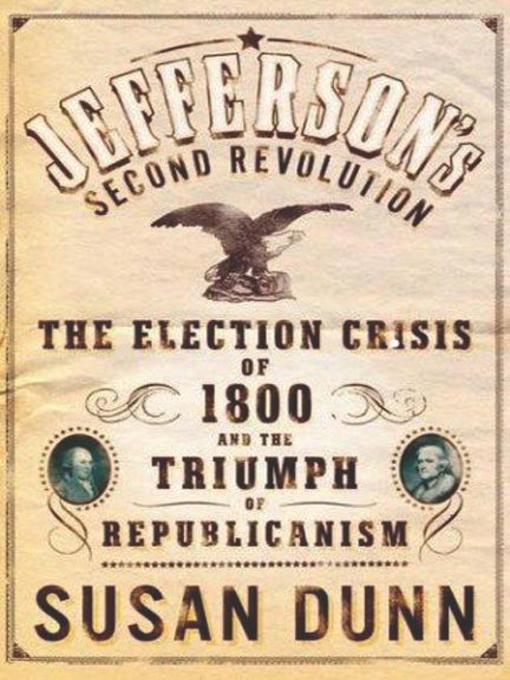
Jefferson's Second Revolution
The Election Crisis of 1800 and the Triumph of Republicanism
کتاب های مرتبط
- اطلاعات
- نقد و بررسی
- دیدگاه کاربران
نقد و بررسی

Starred review from August 2, 2004
In her take on the election of 1800, historian Dunn (co-author with James MacGregor Burns of The Three Roosevelts
, etc.) also offers a dramatic account of the nation's struggle to establish political legitimacy, but with a sharper emphasis on the triumph of Jefferson and his populist ideals. As the 19th century dawned, Dunn explains, the war for independence may have been over, but the true outcome of the American Revolution was still very much in doubt. The choices in 1800 election could not have been starker: Federalist Adams championed the need for a strong central government that would forge an image of honor and national unity. The Republican Jefferson prized the rights of individuals to criticize their government and viewed the Federalist vision as a dangerous slide into monarchy and a reversal of the Revolution's ideals. Like Ferling, Dunn does a superb job of recounting the campaign, its cast of characters, and the election's bizarre conclusion in Congress. That tense standoff could have plunged the country into a disastrous armed conflict, Dunn explains, but instead cemented the legitimacy of peaceful, if not smooth, transfers of power. What sets Dunn's effort apart, however, is her earnest portrait of Jefferson, and his ideals. While careful to acknowledge his "blind spots" and internal conflicts, Dunn eloquently illustrates that it was Jefferson's faith in the ideals of the Revolution that galvanized in our nation "the legacy of a political culture energized by the creative conflict of opposing parties." 12 b&w photos.

September 15, 2004
Some of our partisan pundits claim the next presidential election will be the most important since the Civil War, while others bemoan the "unprecedented" decline of civility in our political dialogue. Dunn, a scholar of eighteenth-century American history, has provided a valuable reminder of an election in which the stakes were truly enormous and the political vituperation was far more poisonous than the relatively moderate attacks heard today. The Federalists, led by incumbent president John Adams and Alexander Hamilton, were committed to a strong central government and the promotion of manufacturing, and they were suspicious of unrestrained democracy. The Democratic-Republicans, led by Thomas Jefferson, favored states' rights, agrarian interests, and a more open democratic political system. Dunn writes beautifully, and she captures the drama of events and the intensity of emotions on both sides while offering well-drawn portraits of the key players, although she probably oversimplifies the differences in the parties. Nevertheless, this is an excellent work that effectively explains this critical contest that shaped the history of the new republic.(Reprinted with permission of Booklist, copyright 2004, American Library Association.)

























دیدگاه کاربران